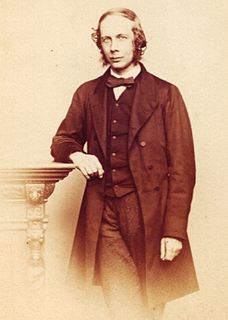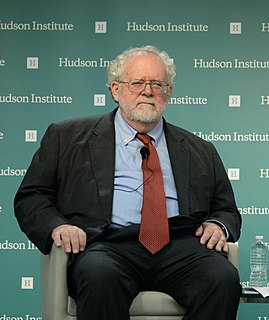A Quote by Edmund Burke
There was an ancient Roman lawyer, of great fame in the history of Roman jurisprudence, whom they called Cui Bono, from his having first introduced into judicial proceedings the argument, "What end or object could the party have had in the act with which he is accused."
Related Quotes
Lucius Cassius ille quem populus Romanus verissimum et sapientissimum iudicem putabat identidem in causis quaerere solebat 'cui bono' fuisset. The famous Lucius Cassius, whom the Roman people used to regard as a very honest and wise judge, was in the habit of asking, time and again, 'To whose benefit?
The legal principle placing the burden of proof on accusers rather than the accused can be traced back to Second and Third Century Roman jurist, Julius Paulus Prudentissimus. Yet, this ancient concept, which forms the legal and moral cornerstone of the American judicial system, is quickly being undermined in the name of 'national security.'
When Edward Gibbon was writing about the fall of the Roman Empire in the late 18th century, he could argue that transportation hadn't changed since ancient times. An imperial messenger on the Roman roads could get from Rome to London even faster in A.D. 100 than in 1750. But by 1850, and even more obviously today, all of that has changed.
Fashion is not just about trends. It's about political history. You can trace it from the ancient Romans to probably until the '80s, and you can see defining moments that were due either to revolutions or changes in politics. At the end of the Roman era, there was this whole move against togas, because that was the signifier of the Roman Empire. In the same way, the '60s were a reaction against the '50s and so on. But now we've been feeding on a sort of cadaver. At the moment, we're just endlessly recycling the past.
History is a great painter, with the world for canvas, and life for a figure. It exhibits man in his pride, and nature in her magnificence,--Jerusalem bleeding under the Roman, or Lisbon vanishing in flame and earthquake. History must be splendid. Bacon called it the pomp of business. Its march is in high places, and along the pinnacles and points of great affairs.
Roman Polanski actually said as much to me once. He had his head in his hands, and I said, "Roman, I've got to tell you, as an actor, seeing the director with his head in his hands... Look, I really want to do what you want me to do." And he went away and he came back, having obviously thought about what I said. And he said, "When my head is in my hands, I'm closing my eyes and trying to remember what I saw in my head, before any of the stuff."









































